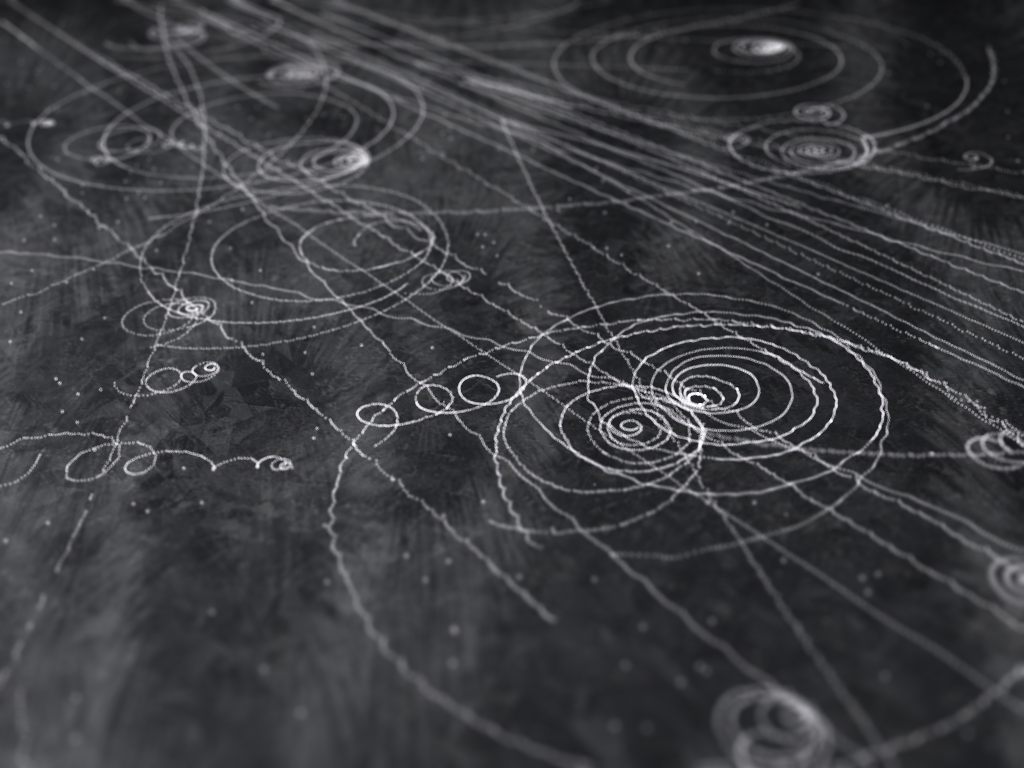
Metamorphosis of the Circle
George Poulet's The Metamorphoses of the Circle
by Julia Evans
Poulet’s method
In order to fully grasp an author’s cogito, it is important to examine all available examples of the author’s work. For Poulet, letters, journals, and unpublished manuscripts hold as much information about the author’s cogito as published novels or poems. He did not believe that these sources should be analyzed as objects, however. Instead, they should be used by the reader to “coexist with the author’s developing grasp and formulation of his own existence” (Lawall 112). By examining an author’s complete body of work, the critic begins to see patterns of expression not only in the work of one particular author but also across literary periods.
In addition to the cogito, Poulet looks for the “point of departure” in an author’s body of work. The point of departure is a “structural and organizing principle” around which the author’s work is centered and which defines the author’s individuality (de Man 82). Poulet asserts that all narratives emerge from a preconceived world in which the author has already determined everything that will happen in the future. This static world is the point of departure for the fictional narrative. If the critic can identify the point of departure, he or she will have a key to the author’s cogito.
Further on method
From the dustcover of ‘The Languages of criticism and the Sciences of Man: The Structuralist Controversy’: Edited by Richard Macksey and Eugenio Donato: 1970
Beginning with the medieval concept of God as an infinite circle, M. Poulet traces the metamorphoses of the circle in the works of the Renaissance and the Baroque, and shows it molded by the minds of Pascal, Balzac, Poe, Flaubert, Baudelaire, James, Claudel, Eliot, and many others. The resulting comparisons are illuminating.
& Charles Poulet also presented
at an international symposium, entitled ‘The Languages of Criticism and the Sciences of Man’, at The Johns Hopkins Center, Baltimore, USA, on 18th – 21st October 1966. See ‘The Languages of Criticism and the Sciences of Man : the Structuralist Controversy’ : 18th to 21st October 1966 (Baltimore, USA) : Richard Macksey & Eugenio Donato (Eds) : The Johns Hopkins Press Baltimore and London: 1970. More information here
Biography
Georges Poulet was born in Chênée, now part of Liège, Belgium in 1902. Poulet received his doctorate from the University of Liège in 1927, after which he taught at the University of Edinburgh. In 1952, Poulet became a professor of French Literature at Johns Hopkins University where he also acted as chair of the Department of Romance Languages and Literatures. He later taught at the University of Zurich and the University of Nice. Poulet died in Brussels, Belgium in 1991.
The focus of Poulet’s work
Lawall (1968) identifies Poulet as “the first critic to develop Raymond’s and Beguin’s concept of experience in literature as a systematic tool of analysis. . . .He shifts their focus from the individual author to the author’s generic human experience” (74).
Poulet’s criticism of consciousness:
Like other Geneva School critics, Poulet rejects the concept of literary criticism as an objective evaluation of structural or aesthetic values.
For critics such as Poulet and Raymond, literature is neither an objective structure of meanings residing in the words of a poem or novel, nor the tissue of self-references of a “message” turned in on itself, nor the unwitting expression of the hidden complexes of a writer’s unconscious, nor a revelation of the latent structures of exchange or symbolization which integrate a society. Literature, for them, is the embodiment of a state of mind. (Miller 306-7)
Lawall (1968) writes, “[Poulet] is not concerned with technical uniqueness, verbal manipulation of themes, or any aspect of art that may be called ‘craftsmanship’ (130). Instead, Poulet is interested in what he calls a ‘criticism of consciousness.’ ”
Lawall (1968) describes criticism of consciousness as “a reading that explores the work’s expression of a conscious, perceiving being.” Poulet’s goal is to “[rethink] and [re-create] the author’s own expression”(78). It is possible for the reader to recreate the individual experience of the author because that experience is both personal and universal. For Poulet, the critic’s job is to “[empty] his mind of its personal qualities so that it may coincide completely with the consciousness expressed in the words of the author” (Miller 307). While reading a book, Poulet is “aware of a rational being, of a consciousness: the consciousness of another, no different from the one I automatically assume in every human being I encounter, except that in this case the consciousness is open to me” (Poulet 54). Poulet calls this consciousness the author’s cogito. The cogito is “each person’s perception and creation of his own existence” (Lawall 86).
“…riverrun, past Eve and Adams, from swerve of shore to bend of bay, brings us by a commodius vicus of recirculation back to Howth, Castle and Environs.”

